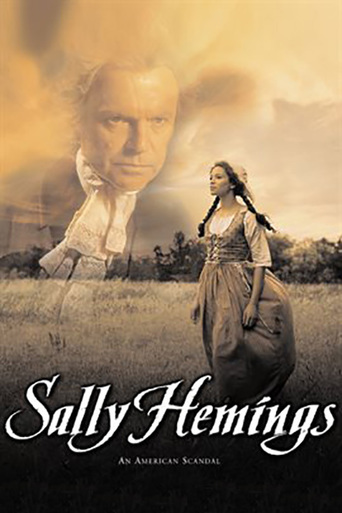

Don't listen to the negative reviews
... View MoreStory: It's very simple but honestly that is fine.
... View MoreIt's a movie as timely as it is provocative and amazingly, for much of its running time, it is weirdly funny.
... View MoreGreat movie. Not sure what people expected but I found it highly entertaining.
... View MoreI was recently doing research on interracial relationships for my history class. I came across this movie, boy am I glad. Although I am happy the writer of the movie was black, I felt some other issues could've been addressed. As far as Thomas Jefferson having children with Sally Hemings is not far from my mind, seeing he would've been like almost every other slave owner in those days. The relationship between Sally Hemings and Thomas Jefferson is shown as a loving one in this movie. Which I have always felt was very far from the truth, there's no evidence that this relationship was anything more than another slave/master relationship. I did wish that they would've shown one of her children being black, considering 2 or 3 of her children could actually pass for white. Besides those things the movie was great, I loved Sam Neil as Thomas Jefferson, he really out did himself in this movie.
... View MoreI thought the movie was great!! I missed a few parts of it, which I would really like to see, but the parts I did see were really good. I think Sam Neill and Carmen Ejogo did excellent jobs. I think everyone did great on the movie and hopefully I will get to see it again so I can see the parts I missed!!
... View MoreThis movie was not immediately something I found great. In fact, as I watched the beginning, I began to find myself laughing at the absurdity of some of the scenes... a reaction not sought after, I am sure. It wasn't awful, and it did have some good parts, but it was something out of a Harlequin romance novel, it seemed. But, as time rolled on, the movie began to unveil its value as a serious, thought-provoking, and often moving portrayal of a time when the human condition outshined the laws of the day. In the end, what made this movie work -- and it worked quite well once it got past the poorly written first scenes -- were the performances of Sam Neill, and Carmen Ejogo. It was not a surprise that Sam Neill made bad lines sound so good -- he's an extremely talented actor -- but it was a surprise to see Carmen Ejogo, a virtual unknown, act so beautifully and eloquently. She is going to be an actress to watch. Not only is she gorgeous to look at, she's talented, as well. Both actors were brilliant in their roles, and that alone makes the movie worth watching. They should be proud of the work they did.
... View MoreWhat a performance for Sam Neill. I thought that his portrayal of Jefferson was delightful. They could not have picked a better actor. I truly loved this mini-series. I think it is one of the best that I have seen in a while.
... View More